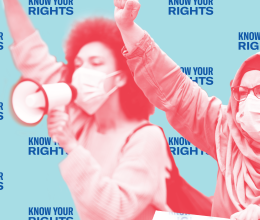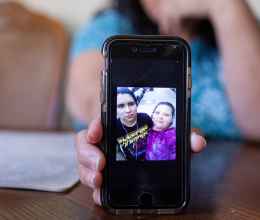
LOS ANGELES - In two separate rulings today, the U.S. Supreme Court refused to overturn the sentences of two non-violent repeat offenders who were sentenced to unusually long prison terms for petty theft offenses.
"Today's ruling makes clear that California voters, rather than our politicians or courts, will have to take responsibility for fixing our Three Strikes law, which is the broadest and harshest in the nation. Californians never intended to give petty, non-violent offenders the same sentences we apply to people who commit murder, rape, and other violent crimes," said Ramona Ripston, Executive Director of the ACLU/SC.
"Our Three Strikes law has too many unintended consequences: it's profoundly unjust; it's costing us a fortune, and it's tearing families and communities apart," said Ripston. "Voters are beginning to understand what an unjust and wasteful law this is."
In fact, a public opinion poll conducted in 2002 by the firm of Fairbank, Maslin, Maullin & Associates on behalf of Families to Amend California's Three Strikes (FACTS) found that 65% of likely general election voters in California would favor amending the three strikes law so that it applies only in cases of violent or serious felonies such as rape, robbery or murder.
The ACLU of Southern California is working closely with FACTS, Human Rights Watch, and other groups to fight for Three Strikes reform at the ballot box. California Assemblywoman Jackie Goldberg has also introduced legislation, AB 112, that would place on the ballot an initiative to limit the application of the three strikes law to violent offenders.
The American Civil Liberties Union was co-counsel in one of the two cases, California v. Andrade. Andrade was convicted of stealing $154 worth of videotapes and is currently serving a 50 year sentence. California's three strikes law was first enacted in 1994.






